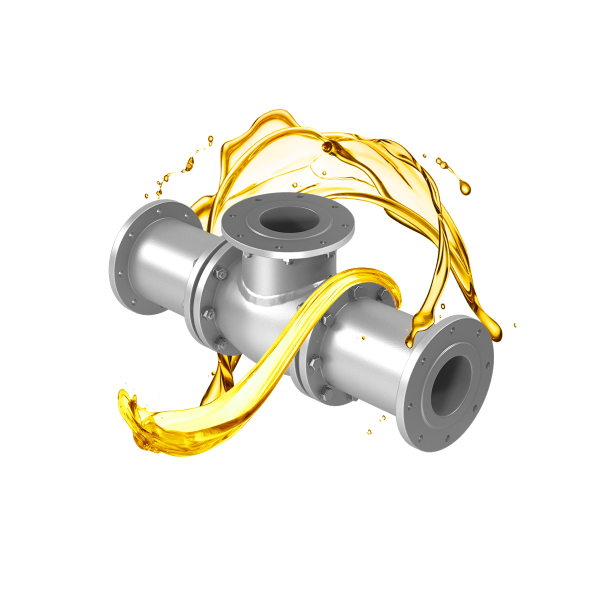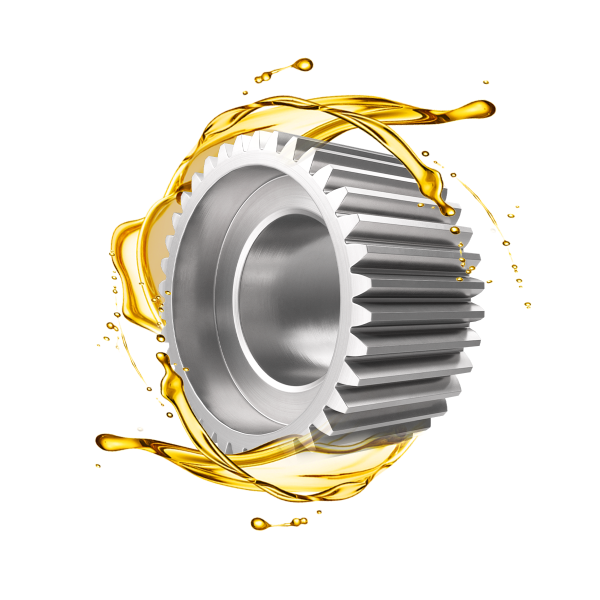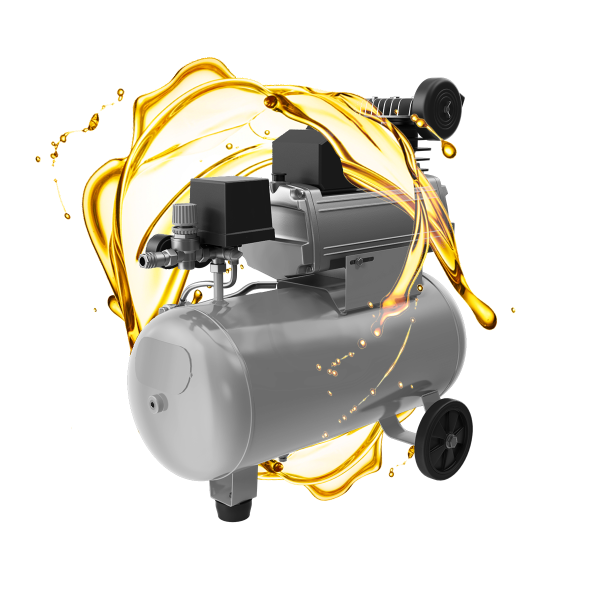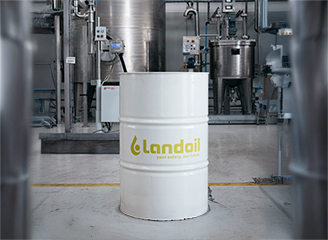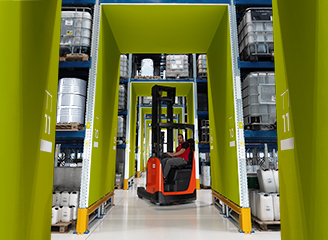Lubricants for industry
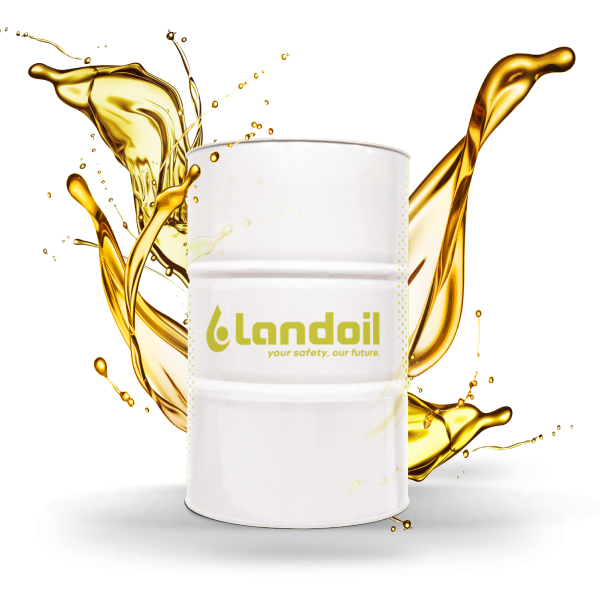
Lubricants for Industry: The Key to Efficient Machine Operation
In the industrial sector, the proper functioning of machines and equipment is crucial to maintaining productivity and minimizing downtime. Read more

Industrial lubricants are formulated to provide effective lubrication in a wide range of industrial applications.
Thanks to their advanced properties, they reduce friction and wear, improving operating efficiency and extending the life of machinery. Ideal for heavy and continuous working conditions.

The use of high-quality industrial lubricants ensures reliable protection
against corrosion and mechanical failure, reducing maintenance costs and downtime. These lubricants maintain high performance even under heavy loads and extreme temperatures, contributing to a safe and efficient working environment.
One of the essential factors in ensuring this efficiency is the use of lubricants for industry. These products not only reduce friction between mechanical components, but also protect against wear, corrosion, and overheating, extending the life of equipment. In this article, we will explore the importance of industrial lubricants, the different types available, and how to choose the right one for your production needs.
What Are Lubricants for Industry?
Lubricants for industry are fluids or greases designed to reduce friction and wear between moving surfaces in industrial machinery and equipment. These products create a protective film that prevents direct contact between metal components, thus reducing wear and improving operational efficiency.
There are various types of industrial lubricants, each formulated for specific applications and operating conditions. The main types include lubricating oils, greases, high-temperature lubricants, and heavy-duty lubricants. The choice of lubricant depends on several factors, such as the nature of the operations, the type of machinery, and the environmental conditions in which they operate.
Benefits of Lubricants for Industry
Using the right lubricants in industry offers numerous benefits, translating into improved business performance. Here are some of the main advantages:
Friction Reduction: Lubricants form a layer between moving surfaces, reducing friction and improving the operational efficiency of machines.
Extended Machine Life: By reducing wear and corrosion, lubricants protect mechanical components, extending the lifespan of equipment.
Energy Efficiency: By reducing friction, lubricants help lower energy consumption, thereby improving the overall energy efficiency of industrial operations.
Protection from Heat and Corrosion: Some lubricants are formulated to withstand extreme temperatures or corrosive environments, offering additional protection to equipment exposed to harsh conditions.
Reduced Maintenance: Using high-quality lubricants can reduce the frequency and cost of maintenance operations, increasing productivity and minimizing machine downtime.
Lubricants for the Metalworking Industry
In the metalworking industry, lubricants play a vital role, especially in processes that involve high friction and surface wear. Lubricants for the metalworking industry are designed to withstand high temperatures and pressure conditions generated during cutting, milling, and grinding operations. These lubricants help improve machining precision and tool life while reducing the risk of thermal deformation in the workpieces.
Best Lubricants for Industrial Machines
The best lubricants for industrial machines are those that provide high performance even under challenging operating conditions. These products are formulated to resist mechanical stress, vibration, heavy loads, and high temperatures. Among the various types of industrial lubricants are hydraulic oils, bearing lubricants, and gear fluids, each designed for specific industrial applications.
High-Temperature Lubricants
Industrial applications that involve high temperatures require lubricants that can maintain their stability and protective properties even at elevated temperatures. High-temperature lubricants are formulated with special additives that make them resistant to heat, preventing lubricant breakdown and ensuring protection of machinery even in extreme conditions. These lubricants are essential for industries like steel production, glass manufacturing, and electronic component production.
How to Choose the Right Industrial Lubricant
Choosing the right industrial lubricant is crucial to ensuring maximum efficiency and protection of equipment. Here are some factors to consider when selecting the most suitable lubricant:
Type of Machinery: Each type of machine has different lubrication needs. For example, heavy-duty equipment requires high-viscosity lubricants, while hydraulic systems need specific oils for power transmission.
Operating Conditions: Temperatures, loads, and the environment in which the machinery operates influence the choice of lubricant. High-temperature or corrosion-resistant lubricants may be necessary in specific contexts.
Type of Lubricant: It’s important to determine whether to use an oil-based, grease, or synthetic lubricant, depending on the specific operational requirements of your industry.
Frequently Asked Questions About Lubricants for Industry
1. What is the difference between industrial oil and industrial grease?
Lubricating oils are fluids primarily used in closed-loop systems such as engines and gears, while greases are used in applications where the lubricant needs to stay on the surface for longer, such as bearings or linear guides.
2. When is it necessary to use high-temperature lubricants?
High-temperature lubricants are required when machinery operates in environments with elevated temperatures, such as industrial furnaces or metal smelting processes, to prevent lubricant degradation and protect components.
3. How can I ensure the maximum lifespan of machines with industrial lubricants?
To ensure the maximum lifespan of machines, it’s important to use the correct lubricant, follow maintenance schedules, and regularly monitor the condition of the lubricant to avoid contamination or degradation.
Conclusion
Lubricants for industry are key elements in ensuring the proper functioning of machines and maintaining operational efficiency. Choosing the right lubricant not only improves equipment performance but also helps reduce maintenance costs and extend the life of machinery. Investing in high-quality lubricants is a fundamental strategy for ensuring the long-term success of your industrial operation.
